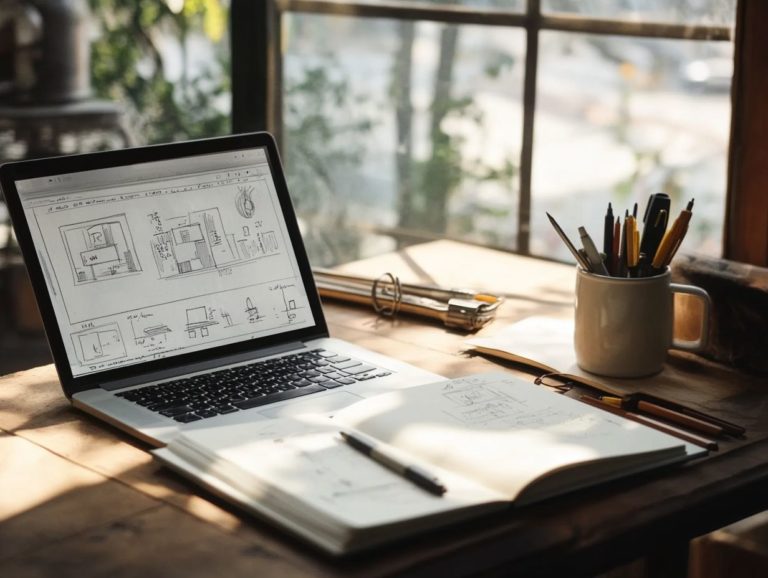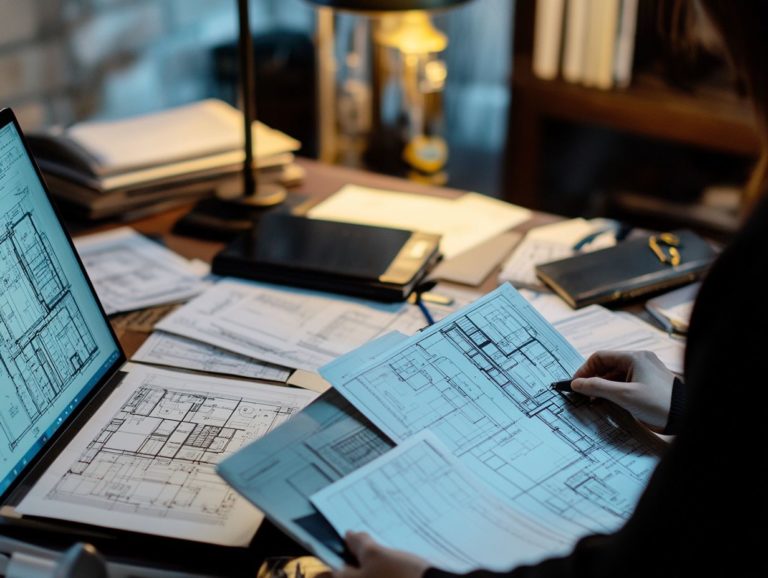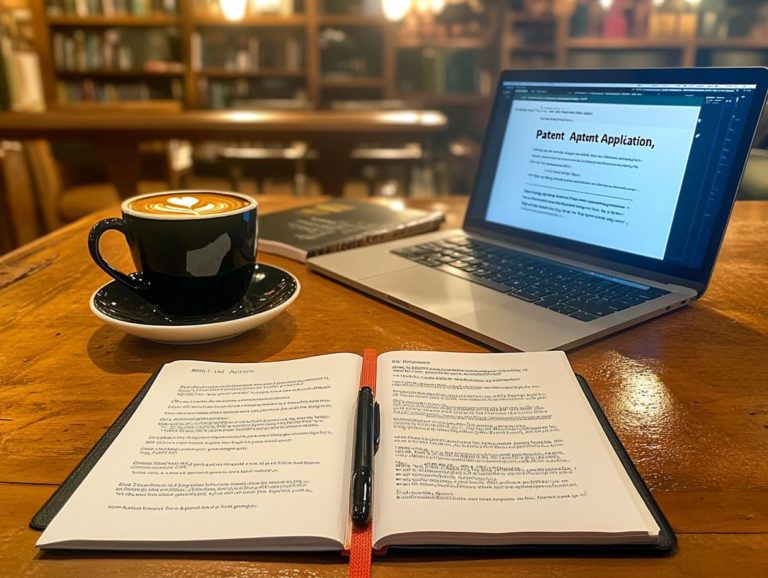How to Prepare for a Patent Interview
Navigating the world of patents can feel overwhelming, especially when preparing for the interview process. A patent interview is a pivotal moment, ensuring that your invention is understood and protected.
This guide will cover the essentials: what a patent interview involves, how to prepare effectively, and the types of questions you can expect.
You ll also find valuable tips for success and best practices for following up after your interview. Whether you re an experienced inventor or just starting out, this guide will equip you with the knowledge to thrive in your patent interview.
Contents
- Key Takeaways:
- Understanding the Purpose of a Patent Interview
- Preparing for a Patent Interview
- Common Questions Asked in a Patent Interview
- Tips for a Successful Patent Interview
- Following Up After the Patent Interview
- Frequently Asked Questions
- 1. What is a patent interview and why do I need to prepare for it?
- 2. When should I start preparing for my patent interview?
- 3. What are some tips for preparing for a patent interview?
- 4. Can I bring someone with me to the patent interview?
- 5. What are some common questions asked during a patent interview?
- 6. What happens after the patent interview?
Key Takeaways:
- Understand the importance of a patent interview.
- Research the patent and related technology.
- Review the patent application before the interview.
- Prepare for common questions with strong answers.
- Follow best practices for a successful interview.

Understanding the Purpose of a Patent Interview
Knowing the purpose of your patent interview is crucial! This interview serves as a vital platform for communication between you and the patent office, fostering a collaborative approach that influences the patent prosecution process.
During this discussion, you and your intellectual property attorney engage with examiners to clarify misunderstandings, address objections from office actions, and align on critical claims language needed for a successful patent grant.
A well-structured patent office interview is essential for navigating the complexities of the patent application process and significantly enhances your chances of favorable outcomes.
What is a Patent Interview and Why is it Important?
A patent interview is a formal discussion between you, the patent applicant, and the examiners. Its purpose is to clarify the claims language of your patent application and enhance the prosecution process.
This vital interaction allows you to engage directly with the examiner, fostering a clearer understanding of the patent’s boundaries and nuances.
The primary aim of a patent interview is to address objections that may arise during the review process, impacting the fate of your application. By maintaining an open dialogue, you can refine your arguments and present a compelling case for the patent’s viability.
These interviews offer insights into the examiner’s perspective, enabling you to adapt your submissions based on constructive feedback, ultimately streamlining your path to approval.
Preparing for a Patent Interview
Preparing for a patent interview is crucial for you as a patent applicant. It enables you to respond effectively to office actions and engage in fruitful discussions with examiners.
Focus your preparation on researching existing patents and technologies, developing interview strategies, and establishing a well-rounded discussion agenda.
Researching the Patent and Related Technology

Researching the patent and its related technology is an essential step in preparing for your patent interview. This diligence helps you anticipate the examiner’s feedback and craft compelling technical arguments.
Conducting a thorough analysis of existing patents, academic literature, and industry advancements relevant to your technology is vital. By delving deeply into the intricacies of your patent application, you can pinpoint potential pitfalls and concerns that the examiner may raise during the interview.
This meticulous exploration not only fortifies your responses but also boosts your confidence in tackling complex questions. Ultimately, comprehensive research lays the groundwork for engaging discussions, allowing for more informed and persuasive conversations with patent examiners.
Reviewing the Patent Application
Reviewing your patent application is essential. It clarifies your claims and prepares you for any objections in the interview.
A thorough review boosts your chances of securing patent protection. Clear claims define your invention’s scope. They help examiners understand what makes it unique.
Any proposed amendments should be thoughtfully considered. They are crucial for fine-tuning your application and addressing concerns raised by the examiner.
By addressing objections during the review, you position your invention more favorably. This creates a dialogue that enhances understanding and increases the likelihood of approval.
Common Questions Asked in a Patent Interview
During a patent interview, you will encounter various questions from examiners. These questions clear up misunderstandings and assess your application.
Manage your time wisely to ensure your responses are thoughtful and precise.
Examples of Questions and How to Answer Them
In a patent interview, you may face questions about your invention’s unique features and how it differs from previous inventions or ideas. Communicate effectively to answer these questions well.
Prepare by outlining specific examples that highlight your invention s advantages. Anticipate questions such as:
- “What materials are used in your invention, and how do they enhance functionality?”
- “Can you elaborate on how your design solves problems that existing technologies do not?”
Addressing these concerns will clarify technical details and showcase your deep understanding of the innovation.
Clearly articulating the distinctions between your work and existing patents enhances your credibility and leads to more productive conversations with the examiner.
Tips for a Successful Patent Interview
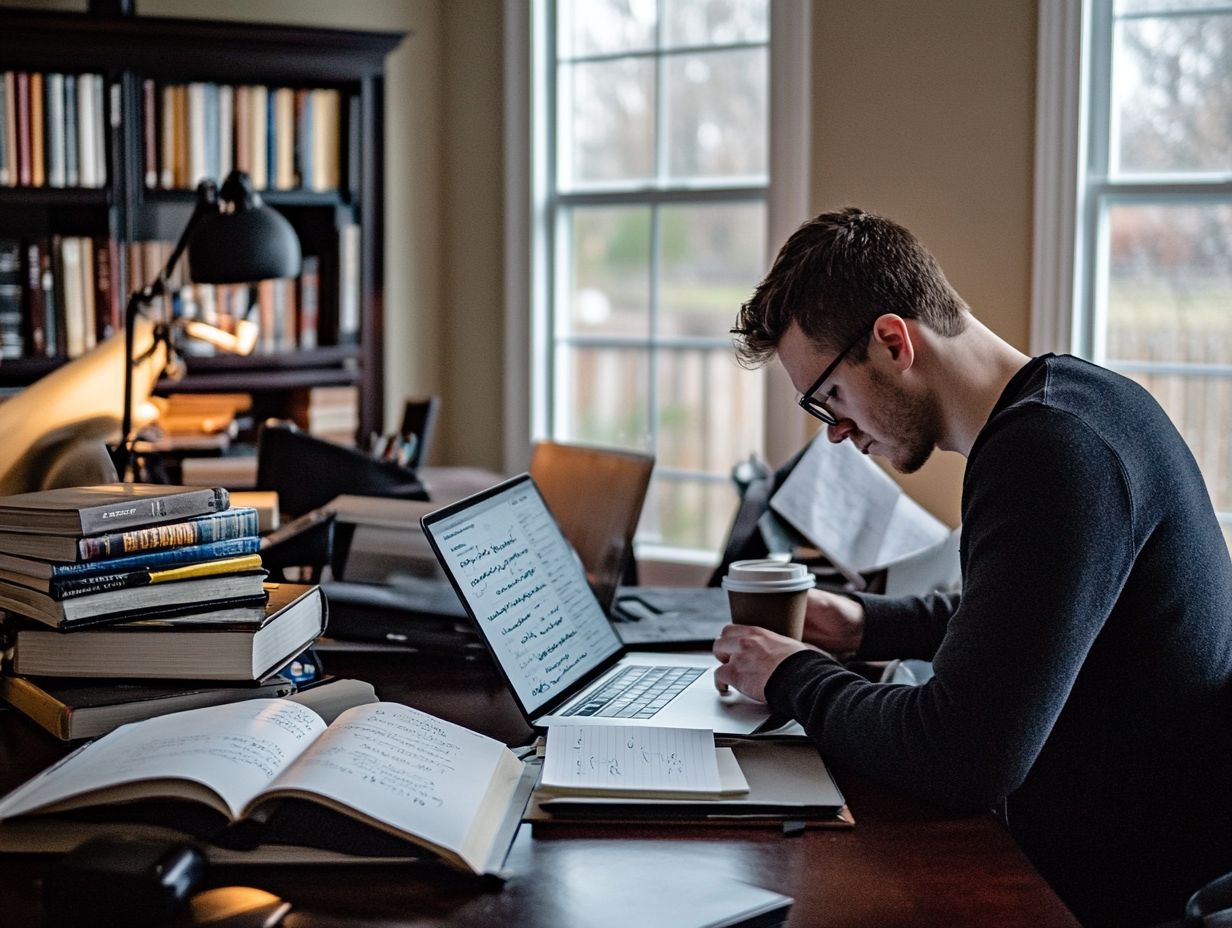
For a successful patent interview, consider employing effective interview strategies, mastering active listening skills, and utilizing stress management techniques.
These tips will help you connect with the examiner and present your case strongly.
Dos and Don’ts for the Interview Process
Understanding the dos and don’ts of the interview can significantly influence the outcome of your patent interview. Prioritize clarity and conciseness when presenting your ideas.
A well-articulated explanation conveys your message, builds rapport, and establishes credibility with the examiner.
Active listening is crucial; by genuinely considering the examiner’s feedback, you demonstrate your willingness to collaborate and adapt. Manage your time effectively to maintain focus on critical points without feeling rushed.
Avoid common pitfalls like speaking over the examiner or dismissing their inquiries, as these behaviors can lead to misunderstandings and lessen your chances of a favorable outcome.
Following Up After the Patent Interview
After a patent interview, follow these key steps to stay on track. Track communications, document discussions in detail, and implement improvement strategies based on the examiner’s feedback.
Each of these actions is vital in ensuring you navigate the patent process with confidence and clarity.
Next Steps and Best Practices
The next steps following your patent interview may involve drafting proposed amendments and answering the examiner’s questions. Refine your arguments based on the insights gained during your discussion.
It s essential to communicate promptly and clearly with the examiner; doing so can help clarify any lingering issues and expedite the approval process. Taking detailed notes during the interview will serve you well in refining your patent application, ensuring that all pertinent points are covered.
You should be ready to adjust your strategies according to the examiner s feedback, showing you can work together to enhance the overall quality of your submission.
Effective follow-up shows your professionalism and commitment and is crucial in navigating the complexities of patent law.
Frequently Asked Questions
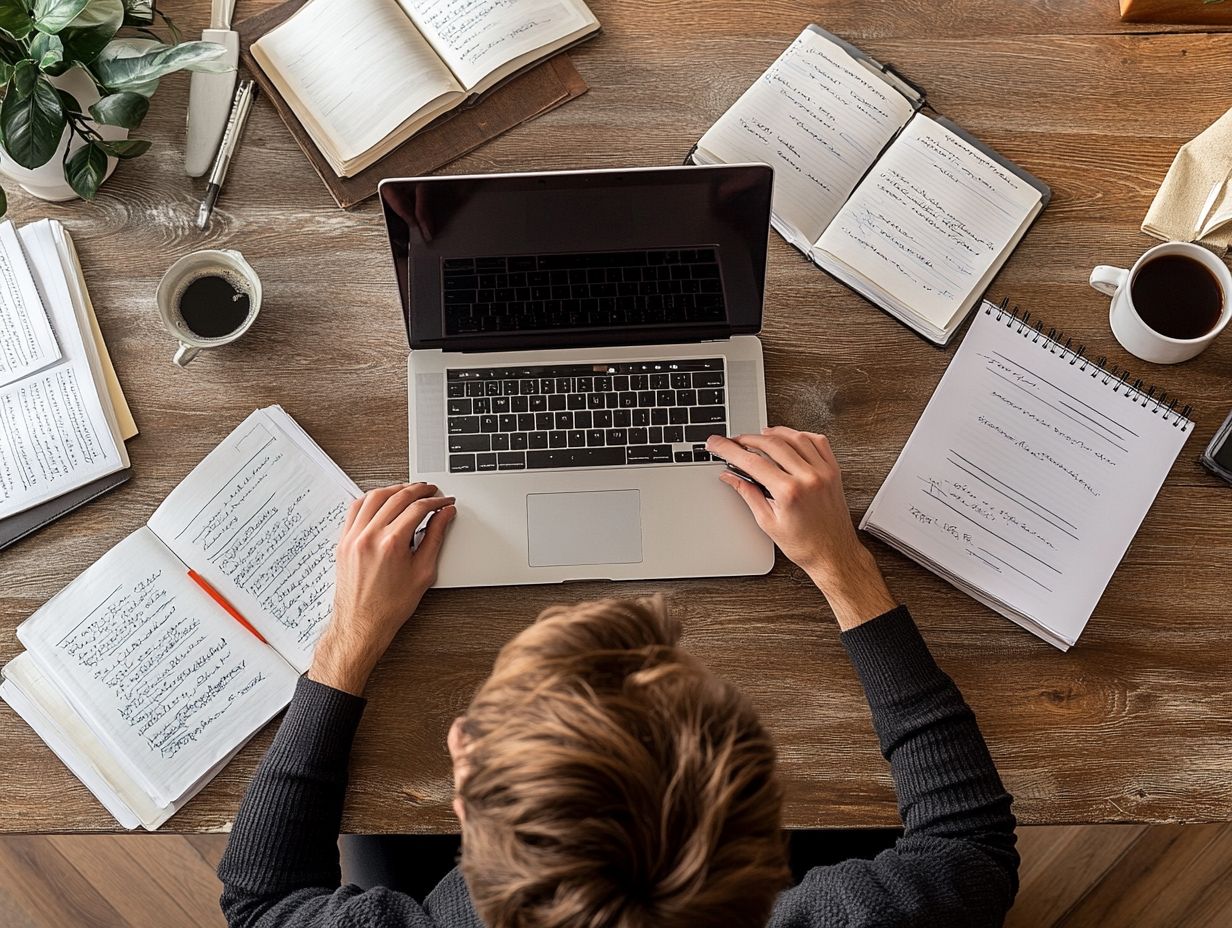
1. What is a patent interview and why do I need to prepare for it?
A patent interview is a meeting between a patent examiner and the inventor or their legal representative to discuss a patent application. It is a vital step in the patent process, as it allows the examiner to ask questions and clarify any issues with the application. Preparing for this interview is a must for success!
2. When should I start preparing for my patent interview?
It is recommended to start preparing for a patent interview as soon as you submit your patent application. This will give you enough time to carefully review your application and anticipate any questions that may arise. It is also important to have all your documents and materials ready before the interview.
3. What are some tips for preparing for a patent interview?
First, ensure you thoroughly understand your patent application and have all necessary supporting materials organized and ready. Next, research the patent examiner and their background to get an idea of their areas of expertise and potential questions they may ask.
Finally, practice your communication skills and be prepared to confidently explain and defend your invention.
4. Can I bring someone with me to the patent interview?
Yes, you are allowed to bring an attorney or a representative from your company to the patent interview. This can be helpful if there are any legal or technical questions that you may need assistance with. However, it is recommended to consult with your patent attorney beforehand to determine if their presence is necessary.
5. What are some common questions asked during a patent interview?
The patent examiner may ask questions related to the novelty and non-obviousness of your invention (non-obviousness means that your invention isn t something that anyone could easily come up with), the prior art in your field, the commercial potential of your invention, and any potential challenges with implementing your invention. They may also ask for further clarification or supporting documentation.
6. What happens after the patent interview?
After the patent interview, the examiner will review all the information and materials presented and make a decision on your patent application. They may also request additional information or amendments to your application.
Stay in touch with the examiner to speed up your application and increase the likelihood of a successful outcome!



